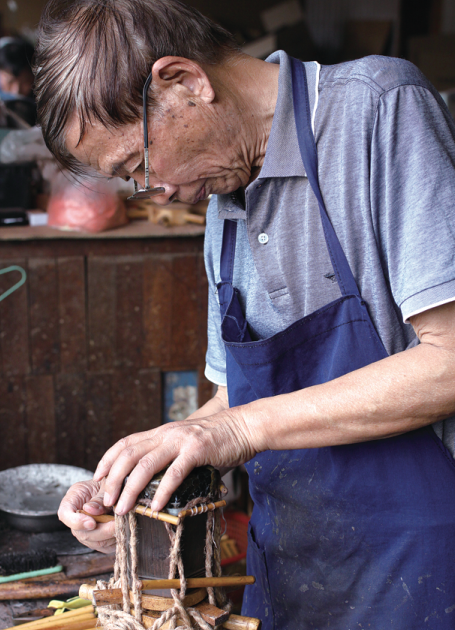Meicun still sings as erhu production hub
By Yuan Shenggao | China Daily | Updated: 2019-11-14 09:19

A hub for erhu
In Wuxi, the boom of erhu music arts is closely related with Meicun, according to Wan Jiang, deputy chief of the Wuxi new area's publicity department.
In Meicun, which is also known as Meili, there are a number of time-honored companies where skilled craftsmen still use ancient techniques to make the authentic Chinese erhu.
One such company is Guyue Qinhang, owned by master erhu maker Wan Qixing.
Wan, who has been in the industry for more than 60 years, is a legend of the town.
He began to learn erhu-making in 1953 when he was 15 years old. He began to run an erhu factory in 1965.
Wan is a believer of the idea that "one is never too old to learn". He became a student of master erhu maker Lyu Weikang in 1999 to improve his skills, which led to the creation of the famous local erhu brand Wan's.
"Selecting the right materials is crucial in making a premium erhu," Wan said.
He uses hardwood varieties such as mahogany and Indian sandalwood to make the long neck of the erhu, while the cover of the body is usually made of python skin.
"We select the tail part of the python skin as the cover for making the best erhu," Wan said, adding that the tail section only accounts for a very smart part of the entire python skin that is usually four to five meters long.
He said a top-quality Wan's erhu sells at prices up to 180,000 yuan ($25,650).
Despite the high costs, premium erhu instruments are always highly sought after by professional artists.
Over the past six decades, Wan has made great efforts to pass down his skills and techniques to younger generations. Today, a number of local erhu makers are students of Wan.
Wan's erhu instruments are currently sold in China, as well as in overseas markets including Japan, Singapore, Malaysia, Europe and the United States.
























